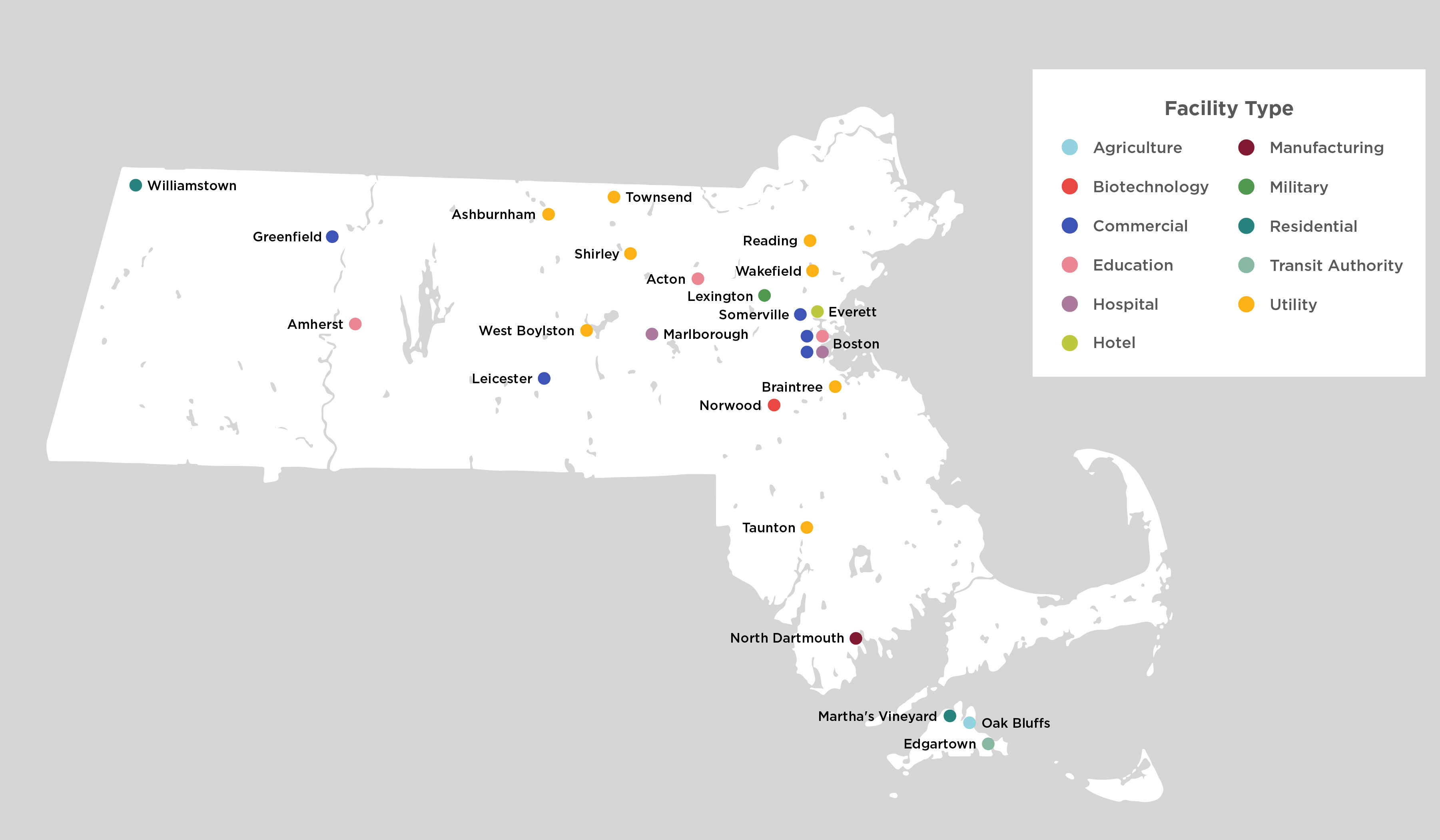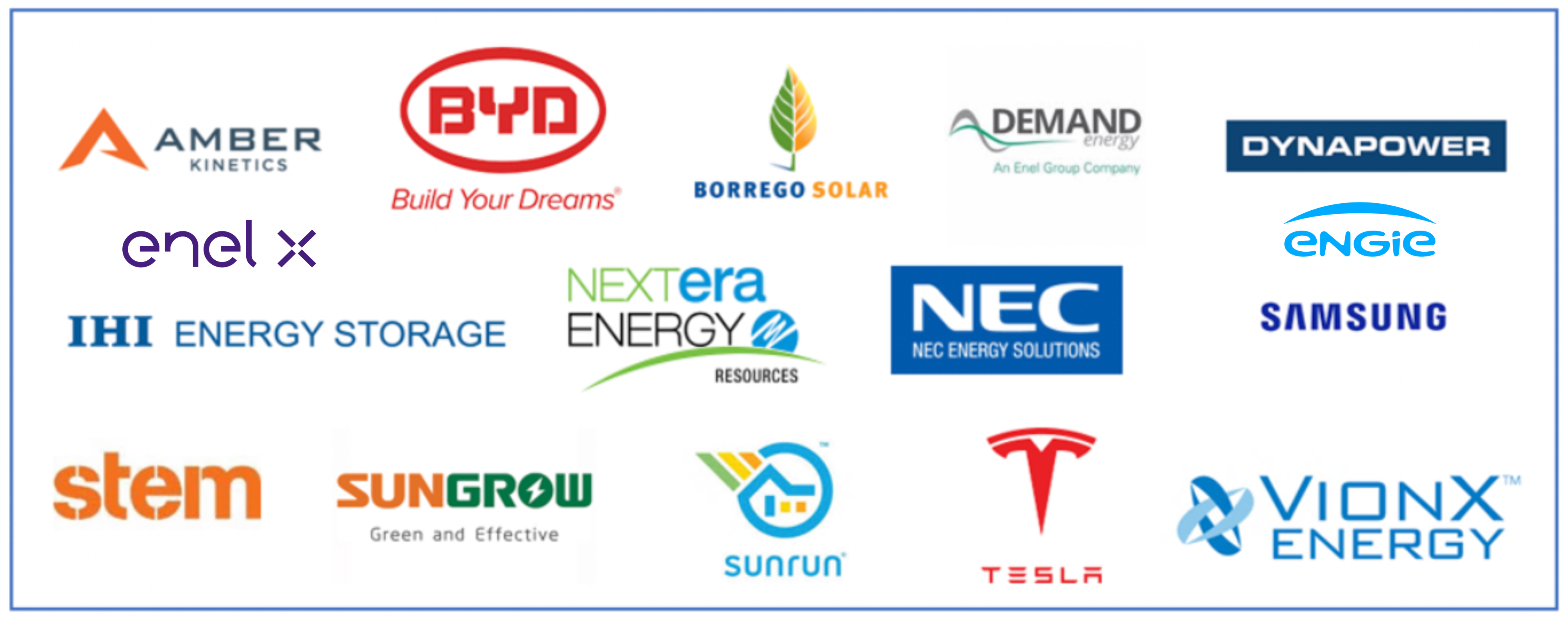
The Challenge: Accelerate Commercialization and Deployment of Storage Technologies
The electric grid will require greater flexibility in order to integrate new renewables and electrify cost effectively. Energy storage performs a variety of functions that benefit both ratepayers and the grid. Systems can be used to reduce peak demand, defer transmission and distribution investments, reduce GHG emissions, reduce cost of renewables integration, defer new capacity investments, and increase grid flexibility, reliability, and resiliency.
Still nascent in 2017, the energy storage market was in need of replicable projects demonstrating how to optimize the benefits of energy storage for different use cases and how to monetize multiple value streams.
About ACES
The ACES program is part of the Energy Storage Initiative, which builds on the insights from the State of Charge report to advance energy storage in Massachusetts.
To prime Massachusetts for increased commercialization and deployment of storage technologies, ACES piloted energy storage demonstration projects with the goal of creating innovative, broadly replicable energy storage use cases/business models with multiple value streams. Many of the projects integrate storage with other technologies, such as solar PV and demand management.
Program Accomplishments
- By analyzing existing energy storage systems and different use models, the Commonwealth determined how to optimize the benefits of energy storage for different cases and provided funding to demonstrate these use cases.
- Through public presentations and aggregated reports, ACES has educated customers, utilities, consumers, policy makers and a variety of industry stakeholders on the benefits and successful business models of energy storage.
- ACES also helped de-risk future investments in energy storage projects by demonstrating replicable financial models and use cases, enabling storage developers to confidently grow their businesses.
- The energy storage market is now growing rapidly thanks in part to early support from the Commonwealth.
2017 - 2026
Demonstration projects
ACES by the Numbers
9 Use Cases
8 from State of Charge, plus one new use case
32 MW / 83 MWh
Total energy storage proposed
$20MM / $31MM
Grant funding requested / Cost-share leveraged
14 Unique Business Models
Varied approaches to stacking value from diverse grid services
Awardee Host Sites and Facility Types

Key Findings
Program Outputs and Reports
Aggregated Reports |
Time Series Data (Excel) |
|---|---|
First Report (including memo on financing, siting, and permitting), Sep 2020 |
|
Second Report (including memo on safety and interconnection), Dec 2020 |
|
Third Report (including memo on commissioning and reporting), March 2021 |
|
Fourth Report (including memo on ESS technology and co-location), Feb 2022 |
|
Fifth Report (including memo on discharge effectiveness), July 2022 |
|
Sixth Report (including memo on O&M and supply chain challenges), December 2022 |
|
Seventh Report (including memo on grantee lessons learned), July 2023 |
|
N/A |
Eighth Data Report |
N/A |
Nineth Data Report |
Technology Providers and Integrators

Program Details
Notable Program Features
The ACES Request for Project Proposals (RFP) was released Spring 2017. The RFP design was based on recommendations from the State of Charge study. Selection considerations included project use cases and benefits, business models, and geographic diversity. Staff favored projects with many diverse benefits and value streams, both monetizable and non-monetizable, that would benefit ratepayers, utilities, and/or bulk power systems. Successful projects showcased examples of future storage deployment, helped to grow the energy storage economy, and contributed to Massachusetts' leadership in clean energy innovation.
To assist in managing the ACES program, MassCEC engaged a program consultant to provide expertise in energy storage projects and energy analytics. The program consultant helped evaluate and verify the value of the storage systems' realized and non-monetizable benefits. The consultant also provided assistance in evaluating technical and business models, pro-formas, and energy data, and performed related program management tasks.